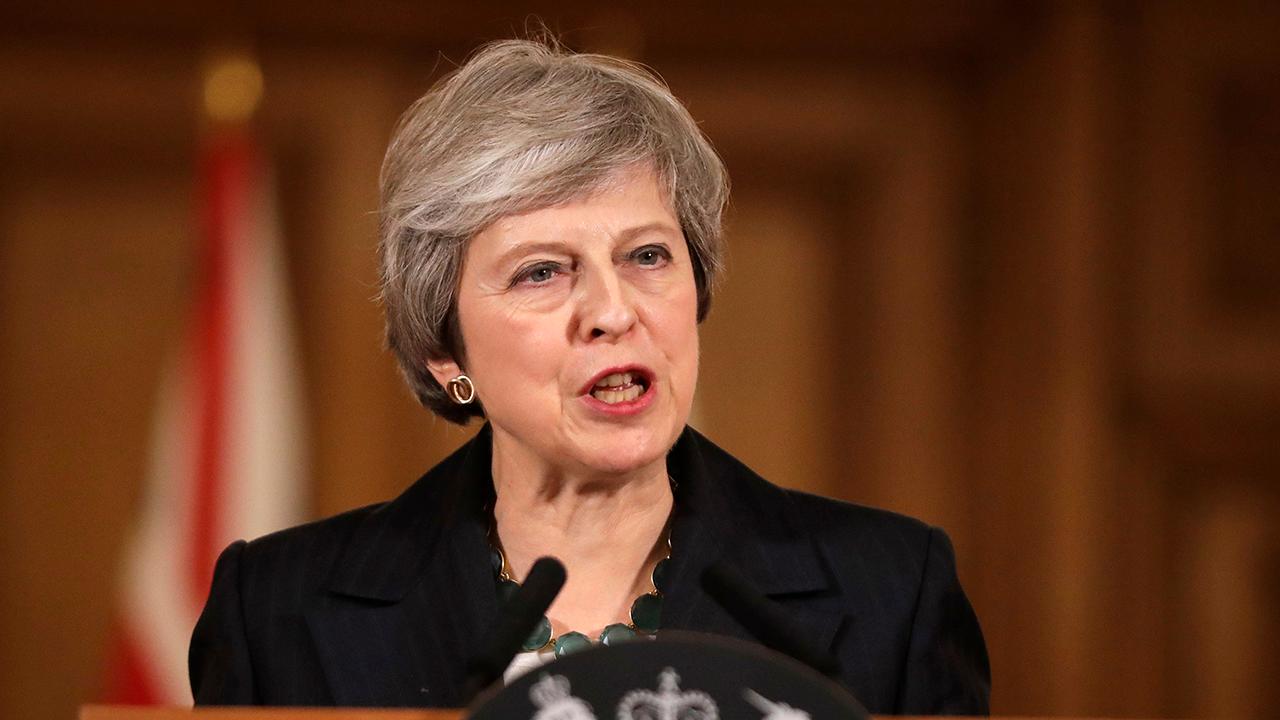Brexit: British Parliament to decide between no deal and delay
LONDON (AP) — British Prime Minister Theresa May bowed to intense political pressure Tuesday and handed control of Brexit to Parliament, telling lawmakers they will get to choose between leaving the European Union on schedule — with or without a divorce deal — or asking the EU to postpone.
May said that if Parliament rejects her deal with the EU next month, lawmakers will vote the next day on whether to leave the bloc without an agreement. If that is defeated, as seems likely, they will vote on whether to ask the EU to delay Brexit by up to three months.
May said the promises were "commitments I am making as prime minister and I will stick by them."
Britain is due to leave the EU on March 29, but so far the government has not been able to win Parliament's backing for its divorce deal with the bloc. That leaves the U.K. facing a chaotic "no-deal" Brexit that could cause disruption for businesses and people in both Britain and the EU.
May shifted position after members of her own government joined calls for her to rule out a "no-deal" Brexit.
Three junior government ministers wrote in the Daily Mail that they would vote with opposition lawmakers to stop a no-deal departure unless May agreed to delay Brexit and guarantee "we are not swept over the precipice on March 29."
May said her goal remains to lead Britain out of the EU on schedule and with a deal, even though she still hasn't managed to win Parliament's approval for her agreement with the bloc.
Her concession to Parliament on Tuesday comes ahead of a series of votes Wednesday in which pro-EU lawmakers will try to force the government to rule out the "no-deal" Brexit and to seek an extension to the Brexit date if Parliament fails to back her deal.
Businesses warn that without a deal Britain risks a chaotic departure that could disrupt trade between the U.K. and the EU, its biggest trading partner. The uncertainty has already led many British firms to shift some operations abroad, stockpile goods or defer investment decisions.
British lawmakers rejected May's deal with the EU last month — largely over concerns about a provision to guarantee an open border between the U.K.'s Northern Ireland and EU member Ireland — and sent May back to Brussels to get changes.
CLICK HERE TO GET THE FOX BUSINESS APP
The EU is adamant that the legally binding withdrawal agreement can't be changed, though the bloc's negotiators are holding talks with U.K. Attorney General Geoffrey Cox about potential tweaks or additions around the margins.
May has said a new vote on any revised Brexit deal won't be held this week and could come as late as March 12.
Both May's governing Conservatives and the main opposition Labour Party are deeply split over Brexit, and there is no quick or easy way to break the political impasse.
Labour on Monday took a step toward campaigning for a new Brexit referendum as a way to break the deadlock. The left-of-center party said it would back a second public vote if the House of Commons rejects its alternative Brexit plan.
Labour's Brexit spokesman, Keir Starmer, said the public should be given a vote on whether to accept May's deal or to remain in the EU.
But that idea faces opposition from some Labour lawmakers in areas that voted to leave the bloc, who say reversing Brexit would betray the will of voters.
"We can't ignore millions of Labour 'leave' voters," said Labour lawmaker Caroline Flint.




















